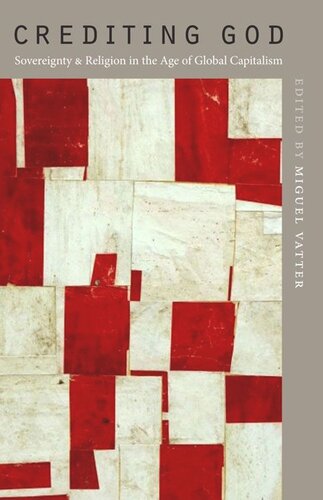

Most ebook files are in PDF format, so you can easily read them using various software such as Foxit Reader or directly on the Google Chrome browser.
Some ebook files are released by publishers in other formats such as .awz, .mobi, .epub, .fb2, etc. You may need to install specific software to read these formats on mobile/PC, such as Calibre.
Please read the tutorial at this link: https://ebookbell.com/faq
We offer FREE conversion to the popular formats you request; however, this may take some time. Therefore, right after payment, please email us, and we will try to provide the service as quickly as possible.
For some exceptional file formats or broken links (if any), please refrain from opening any disputes. Instead, email us first, and we will try to assist within a maximum of 6 hours.
EbookBell Team

4.0
26 reviewsTocqueville suggested that "the people reign in the American political world like God over the universe.” This intuition anticipates the crisis in the secularization paradigm that has brought theology back as a fundamental part of sociological and political analysis. It has become more difficult to believe that humanity’s progress necessarily leads to atheism, or that it is possible to translate all that is good about religion into reasonable terms acceptable in principle by all, believers as well as nonbelievers. And yet, the spread of Enlightenment values, of an independent public sphere, and of alternative “projects of modernity” continues unabated and is by no means the antithesis of the renewed vigor of religious beliefs. The essays in this book shed interdisciplinary and multicultural light on a hypothesis that helps to account for such an unexpected convergence of enlightenment and religion in our times: Religion has reentered the public sphere because it puts into question the relation between God and the concept of political sovereignty. In the first part, “Religion and Polity-Building,” new perspectives are brought to bear on the tension-ridden connection between theophany and state-building from the perspective of world religions. Globalized, neo-liberal capitalism has been another crucial factor in loosening the bond between God and the state, as the essays in the second part, “The End of the Saeculum and Global Capitalism,” show. The essays in the third part, “Questioning Sovereignty: Law and Justice,” are dedicated to a critique of the premises of political theology, starting from the possibility of a prior, perhaps deeper relation between democracy and theocracy. The book concludes with three innovative essays dedicated to examining Tocqueville in order to think the “Religion of Democracy” beyond the idea of civil religion.